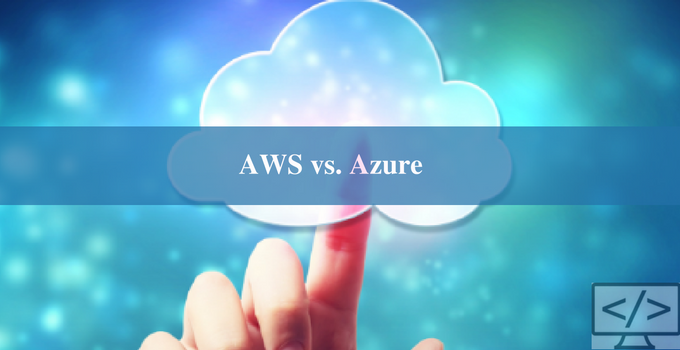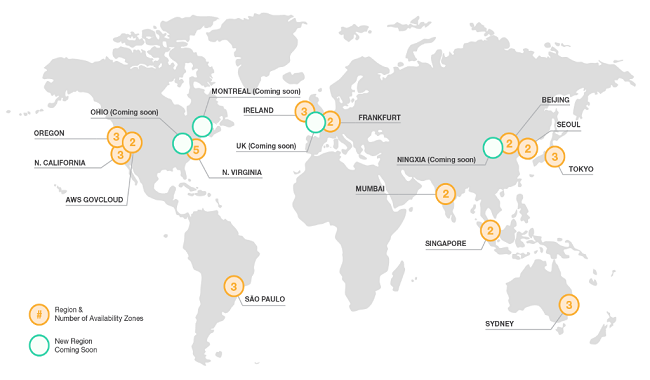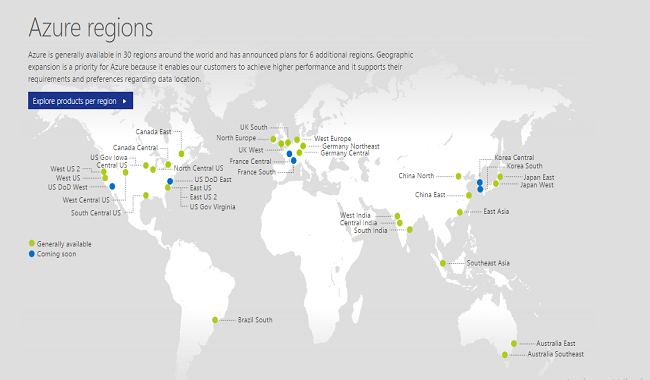
When it comes to cloud-computing giants, Amazon’s AWS and Microsoft’s Azure are the two cloud platforms that come at the top. Clearly, AWS is the supreme leader in the cloud-computing sphere and racks the highest number of data servers across the world. Not to mention, both players are improving and competing hard to maximize their user base.
Microsoft Azure comes toe-to-toe with Amazon’s AWS in terms of features but lacks a few features that Amazon’s AWS offers. Recently, we covered a comparison between AWS and DigitalOcean, and now we move on to the AWS vs Azure comparison. Our readers can reference both articles and decide on which cloud service to pick.
The tech giants, Amazon and Microsoft, are well known for their competitive behavior and have shown their competitive behavior with regular price cuts. Recently, they have started competing in features as well, making the market a great place for end users.
So, how do they compare? Let’s take a look at
AWS vs Azure
Compute
Compute refers to the processing power of a machine — it can be your local machine or the cloud you opt to purchase. When it comes to computing, it is better to choose cloud services as compared to your local machine as it gives you the freedom to scale and buy resources as you want.
Both AWS and Azure offers excellent compute solutions. AWS offers its compute solution, Elastic Compute Cloud (EC2), whereas Azure has Virtual Machines to do the same. Functionally, both are the same, but Azure offers better control over savings due to its special computing processes for mobile and web apps (the only criteria is that your app meets the selection criteria to use the feature). Both work great with Docker.
Check out Raistlix, from the United States, using Azure for automation purposes.
Locations
Server locations are important for businesses. For example, the latency of a business app depends on the server on which it is deployed. If it is too far away, it can easily hamper user experience (UX) which in turn can slow business growth.
Regarding data centers, Amazon reigns supreme with capacity. Their data centers span mostly across Europe, Asia, and the US. Azure also offers an extensive range of data centers around the world, but falls short when compared to Amazon. Below are the images showcasing the data centers of both Amazon and Azure.
Pricing
Comparing pricing for two giant cloud-computing services can be a tricky proposition. They offer solutions (configurable software that works for a particular cause) for many use-case scenarios such as storage, compute, database, etc.
In general, both of them are competitively priced and any service that you choose to use will cost you almost the same. If you are not sure how much it will cost you to use a particular solution, check out the CloudCalculator website which you can use to calculate the cost.
Learn more : Livecoding.tv Azure Guide & Project Samples
Storage
Storage is a big part of cloud services. When it comes to storing a petabyte of data, standard data storage methods do not work, and this is where the proprietary solution of each of the vendor comes in. Amazon offers Simple Storage Service (S3) for storing objects. It is one of the popular ways to store data. For S3, you can find sufficient documentation and tutorials online making it an excellent choice. Azure offers Azure Storage, which offers similar feature-set compared to S3. When it comes to documentation and online tutorial, Amazon’s S3 easily beats Azure.
Performance
Similar to pricing, performance is also a hard metric to compare, due to diverse solutions provided by both AWS and Azure. If you want to understand the performance of the platforms, you can visit the ultimate cloud speed tests article on InfoWorld where the author Peter Wayner tests the three big players in the cloud-computing market, Google Cloud Platform, Amazon’s AWS and Windows Azure.
Analytics
Cloud servers are used by the big Fortune 500 companies as well as by startups who do not want to worry about cloud infrastructure and its nuisances. Analytics plays an important role when it comes to serving millions of users. For companies or startups, it is important to understand their product and audience. Both AWS and Azure comes with analytics solutions taking the head-on challenge on big data.
The leader in analytics and big data is Google and their cloud solution. Amazon and Azure do have their own offerings, Elastic MapReduce (EMR) and HDInsight, respectively. These tools are used to gather hidden information using Business Intelligence (BI) and open hidden paths for businesses.
Learn more : Livecoding.tv AWS Guide & Project Samples
Conclusion
When it comes to competing markets, the only beneficiary is the end user. It’s the same in the cloud-computing market, which is poised right now with various offerings, ranging from Amazon’s AWS to Google Cloud Platform. Smaller players such as DigitalOcean also play a big role in the market as it tries to provide powerful cloud services at an affordable price.
There is no clear winner here. Both AWS and Azure shine in their own way, with AWS leading the way with better data centers and popular solutions catering to enterprises and startups.
So, what do you think about the comparison? Who, in your opinion, is the actual winner? We want to hear your opinion in the comments section below!









